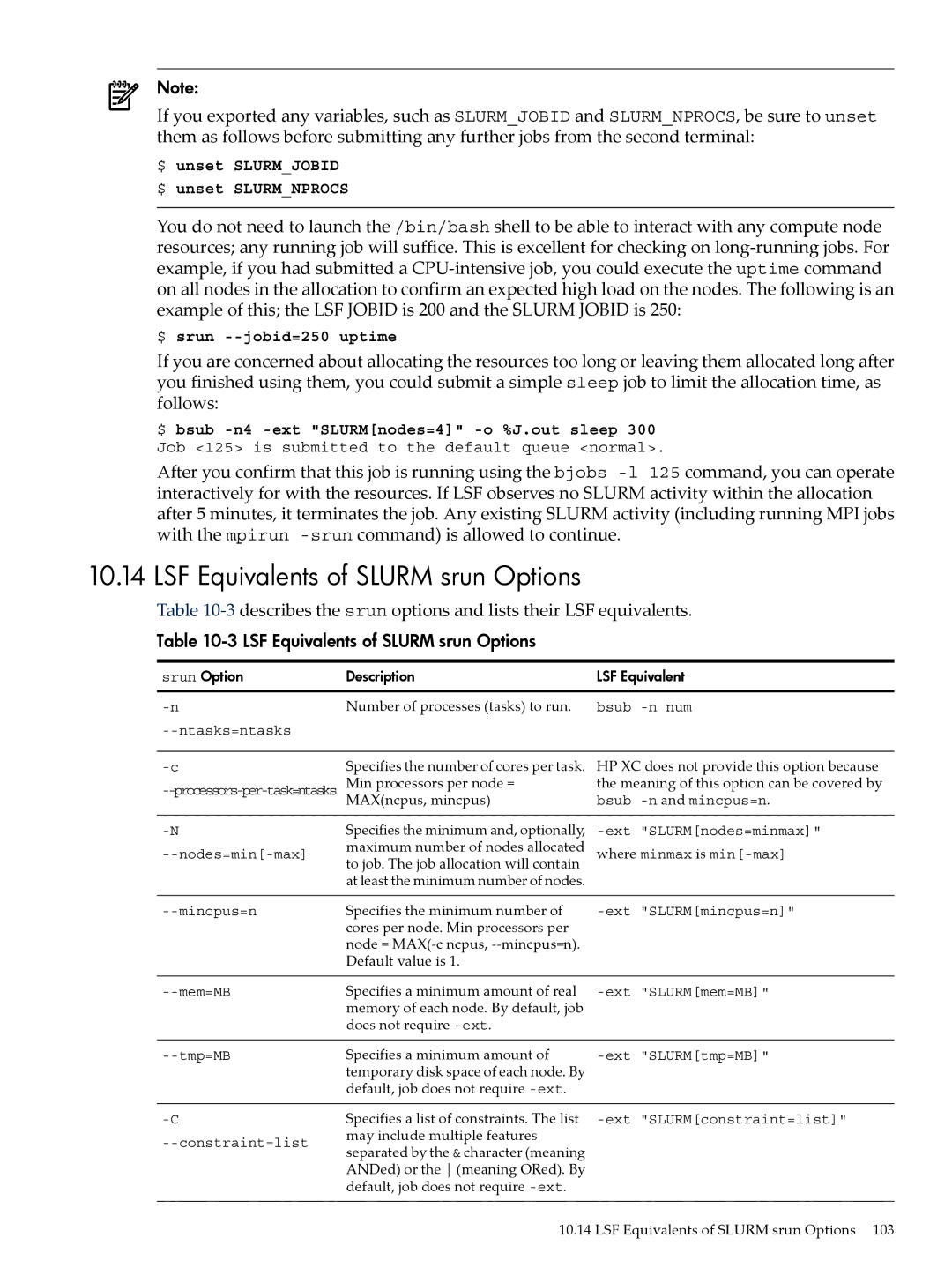
Note:
If you exported any variables, such as SLURM_JOBID and SLURM_NPROCS, be sure to unset them as follows before submitting any further jobs from the second terminal:
$ unset SLURM_JOBID
$ unset SLURM_NPROCS
You do not need to launch the /bin/bash shell to be able to interact with any compute node resources; any running job will suffice. This is excellent for checking on
$ srun --jobid=250 uptime
If you are concerned about allocating the resources too long or leaving them allocated long after you finished using them, you could submit a simple sleep job to limit the allocation time, as follows:
$ bsub
After you confirm that this job is running using the bjobs
10.14 LSF Equivalents of SLURM srun Options
Table 10-3 describes the srun options and lists their LSF equivalents.
Table 10-3 LSF Equivalents of SLURM srun Options
srun Option
Description
Number of processes (tasks) to run.
Specifies the number of cores per task. Min processors per node = MAX(ncpus, mincpus)
Specifies the minimum and, optionally, maximum number of nodes allocated to job. The job allocation will contain at least the minimum number of nodes.
LSF Equivalent
bsub
HP XC does not provide this option because the meaning of this option can be covered by bsub
where minmax is
Specifies the minimum number of | ||
| cores per node. Min processors per |
|
| node = |
|
| Default value is 1. |
|
Specifies a minimum amount of real | ||
| memory of each node. By default, job |
|
| does not require |
|
Specifies a minimum amount of | |
temporary disk space of each node. By |
|
default, job does not require |
|
Specifies a list of constraints. The list | |
may include multiple features |
|
separated by the & character (meaning |
|
ANDed) or the (meaning ORed). By |
|
default, job does not require |
|
10.14 LSF Equivalents of SLURM srun Options 103
